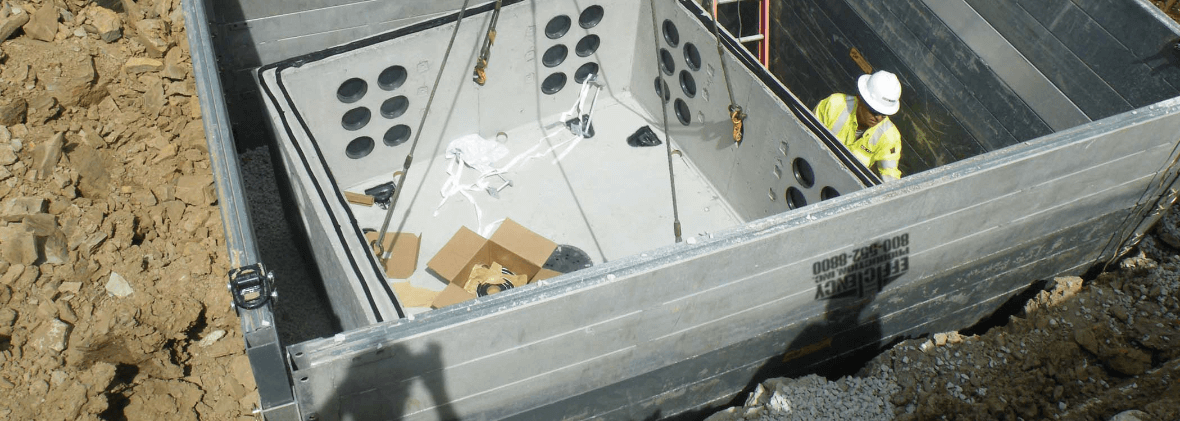
Steel vs. Aluminum Trench Boxes: Which to Rent?
Trench boxes, also called trench shields, protect workers during excavation by preventing wall collapses. They’re made of sturdy plates and adjustable spreaders that hold trench walls in place. The two most common types are steel and aluminum, each with its own advantages. Here’s how they compare and why renting may be the best choice for you.
1. Durability
Steel is the stronger option. It resists bending, dents, and pressure from heavy soil. Aluminum is softer and can bend without breaking, but it’s more prone to scratches and dents. That said, aluminum offers an excellent strength-to-weight ratio, making it easier to handle on site.
2. Size Options
Steel trench boxes come in more sizes, usually 4–10 feet tall and 8–32 feet long. Aluminum boxes are more limited, usually 6–8 feet tall and 6–16 feet long. Steel works better for deeper or longer trenches; aluminum is best for smaller jobs.
3. Weight
Aluminum trench boxes are lighter and easier to transport or install without heavy machinery. Steel—being more than twice as dense—is much heavier yet more stable and durable in demanding conditions.
4. Applications
Lightweight aluminum trench boxes are better for small-scale excavation projects or shallow trenches. They work well with compact excavators or backhoes for tasks like pipe laying, cable installation, and manholes. Steel trench boxes, on the other hand, are designed for heavy-duty excavation, uneven terrain, and deep trenching with large equipment.
5. Cost
Steel is usually less expensive per pound than aluminum, though material costs vary. Aluminum is pricier but can be more cost-effective to install since it often doesn’t require heavy machinery. When renting, you can choose the right type without worrying about long-term ownership costs.
6. Resale Value
Steel trench boxes often last longer and keep their resale value. Aluminum may dent more easily but resists corrosion better than steel, giving it strong long-term utility.
Rent Steel or Aluminum Trench Boxes
You can rent steel or aluminum trench boxes at The Cat® Rental Store. Our dealer network offers top-quality equipment and expert advice to match the right box to your project.
Find your nearest location of The Cat Rental Store or request a quote to reserve a trench box for your next excavation job.
Steel vs. Aluminum Trench Box FAQs
Q: Which trench box is easier to handle?
A: Aluminum trench boxes are lighter and easier to move, making them suitable for smaller crews.
Q: Which trench box is more durable?
A: Steel trench boxes are more rigid and resistant to damage, making them ideal for heavy-duty excavations.
Q: Can aluminum trench boxes be used in deep trenches?
A: They’re better for shallow or small excavations. Steel trench boxes are preferred for deeper projects.
Q: Why rent trench boxes instead of buying?
A: Renting gives you flexibility to choose the right box per project, avoid storage and maintenance costs, and access late-model equipment.
Find The Cat Rental Store Near You